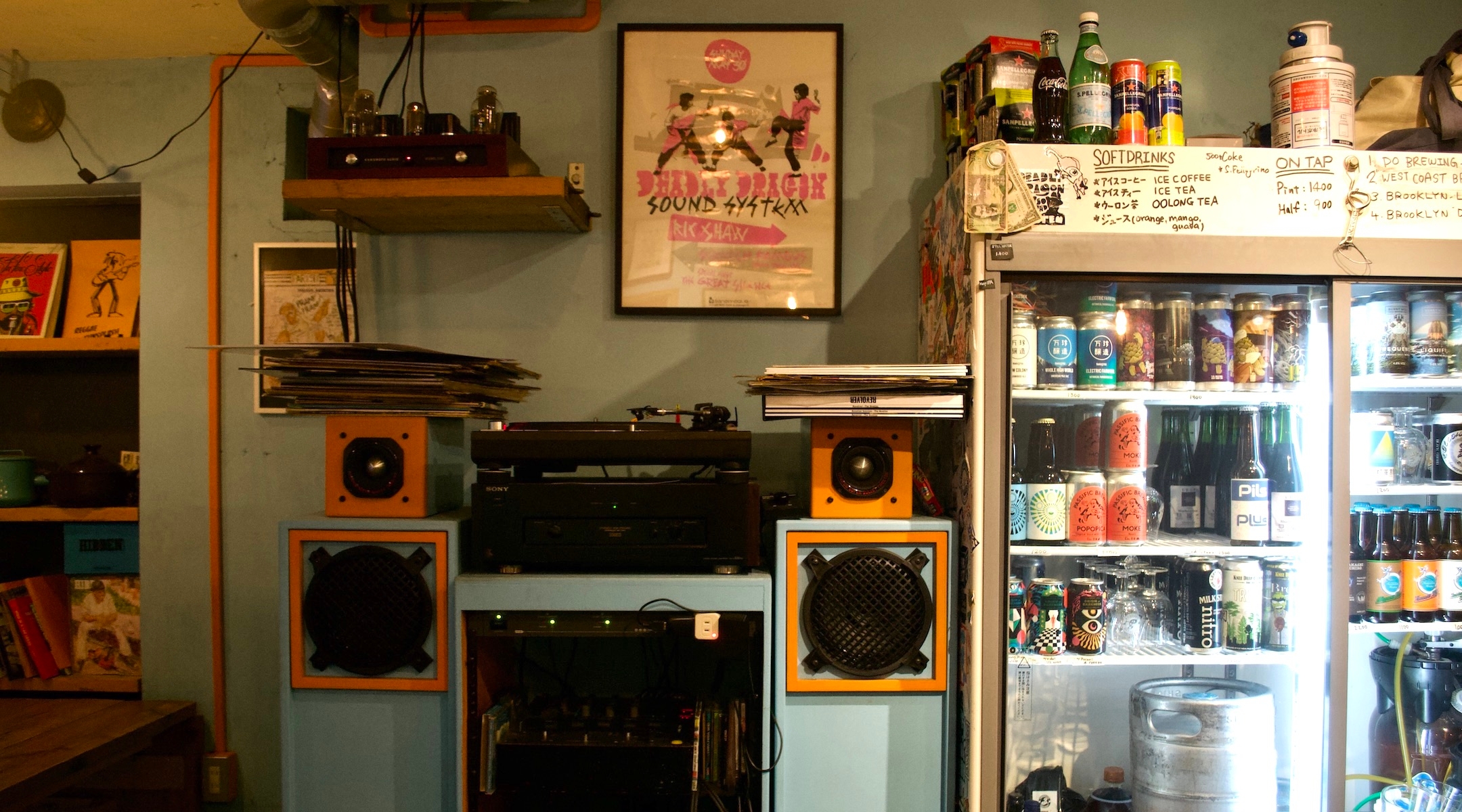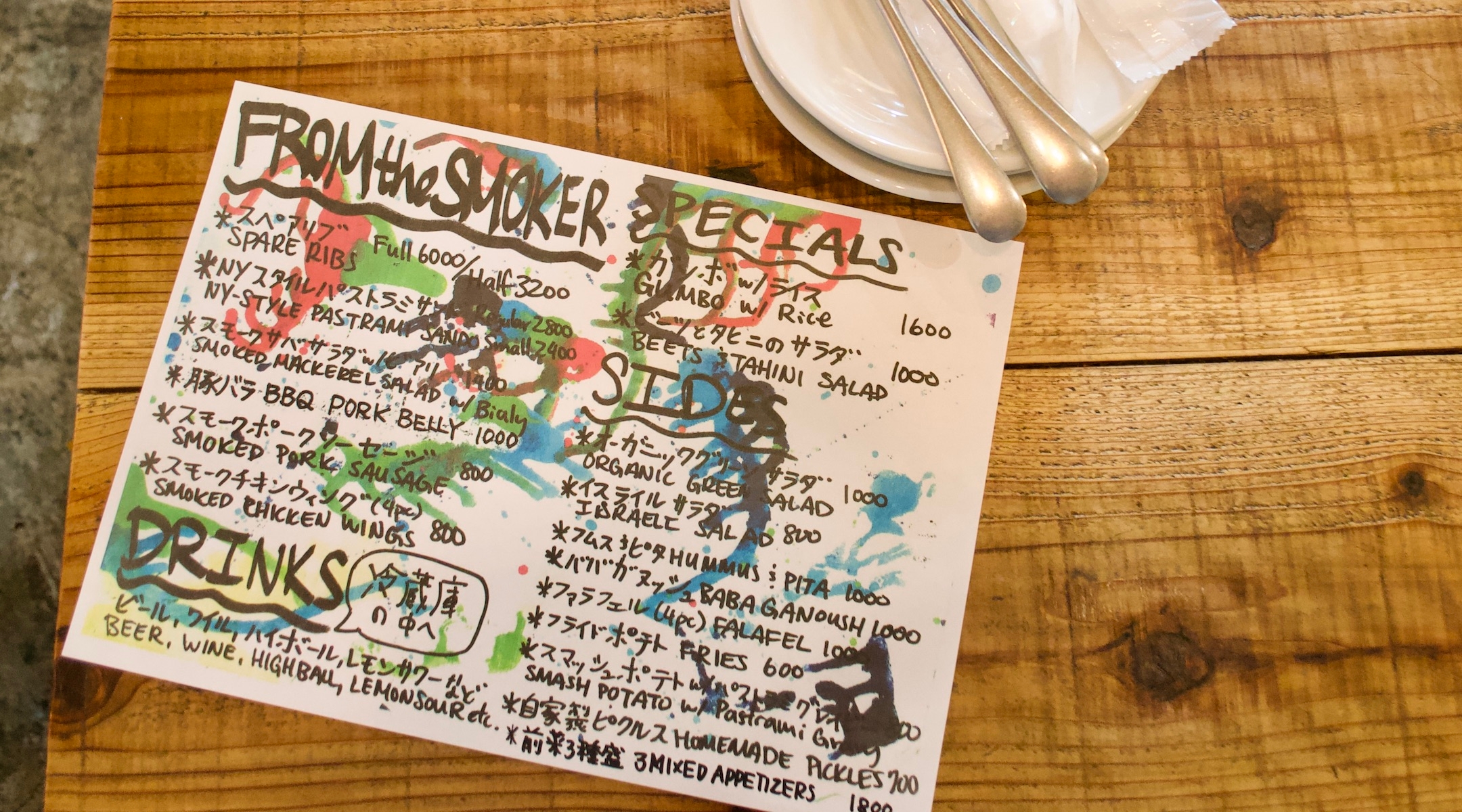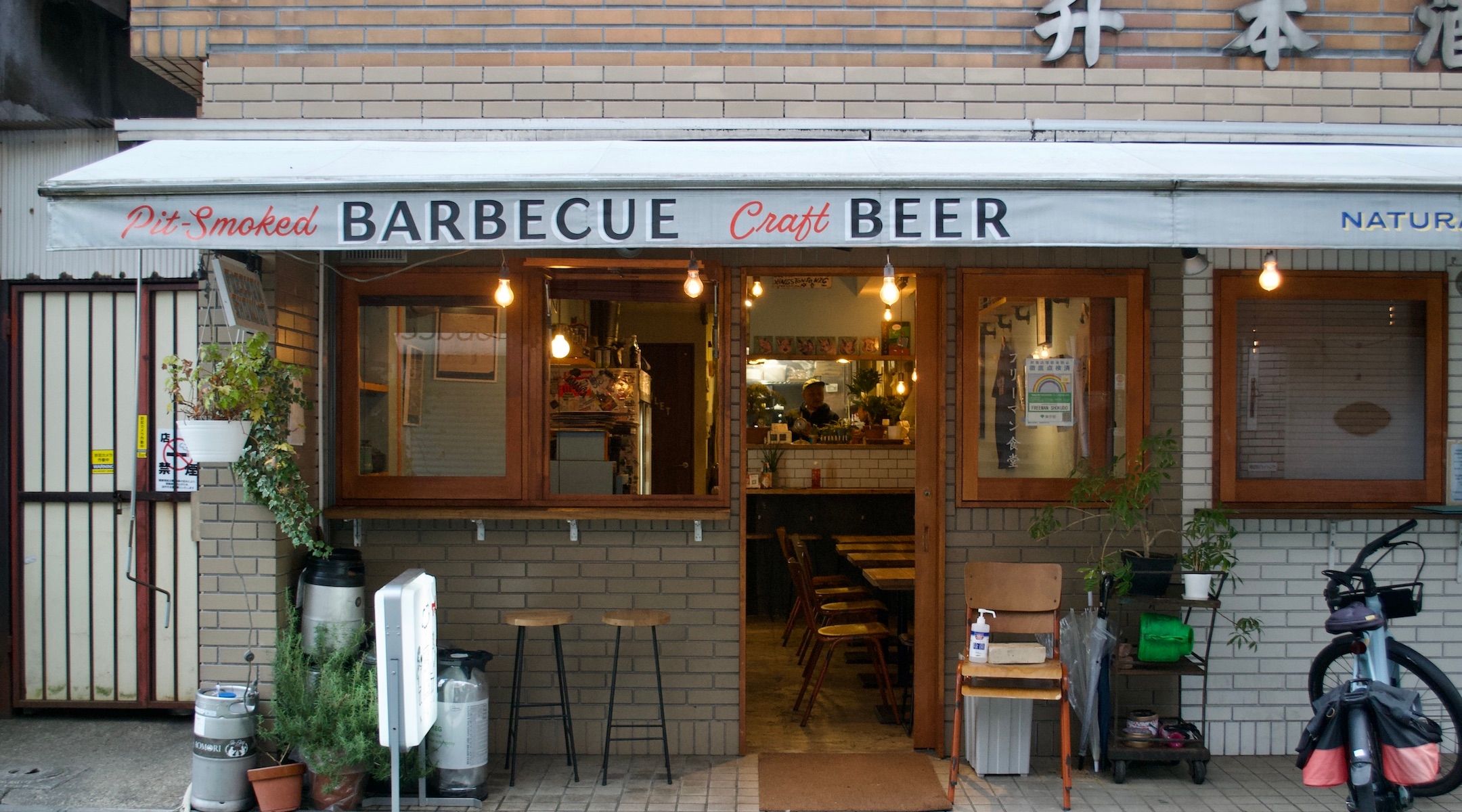TOKYO (JTA) — Smoky flavor has always tasted like home for Jeremy Freeman. Growing up in New York City, smoked salmon was of course a staple, alongside his daily whitefish salad on a bialy from Russ & Daughters. His favorite pastrami came from the long-closed Gelitz’s deli around the corner from his childhood home, which sold the smoked meat in unusually thick slices.
After meeting his now-wife, Maiko, the couple moved from Manhattan to Brooklyn, where Freeman had access to something new: a backyard. When he wasn’t selling vintage Jamaican records at his shop and when Maiko wasn’t manning her Japanese home-style food stall at Brooklyn’s Smorgasburg food market, they began to host barbecues. Freeman began experimenting with smoking his own meats.
In 2017, when the couple decided to move to Japan, Maiko’s home country, to raise their kids, Freeman got serious about his barbecue craft and decided to bring a taste of his favorite Jewish American comfort staples to Japan.
ADVERTISEMENT
The Freemans opened Freeman Shokudo, located in Hitagaya — a quiet neighborhood in Tokyo’s otherwise bustling Shibuya business district — in 2021. It has flourished in the city’s competitive restaurant scene: on a recent week day, Freeman was antsy as a lunch rush flooded the restaurant just before closing for the afternoon at 3 p.m. Nearly every table filled once again just half an hour after it reopened for dinner at 6.
“The restaurant really revolves around my memory and flavors that I like that are reflective of New York City,” Freeman said before customers began to trickle in for dinner.

Freeman — who manned the kitchen alone on this reporter’s recent visit — uses a custom-built smoker made with Japanese oak. The customer base is about half Japanese and half foreigners. Its reputation among Jewish transplants has allowed Freeman to practice what has become a favorite monthly tradition of preparing a “true Nana-style brisket”: smoked leftover brisket ends braised with tomatoes, onions and garlic, served with heapings of sour cream and dill. “Whenever we have that, a lot of the Hebrews want to come out and partake,” Freeman said.
ADVERTISEMENT
But Freeman Shokudo doesn’t limit itself to the Jewish classics. Also on the menu are some deeply unkosher choices: spare ribs, barbecue pork belly and smoked pork sausages. Gumbo served over rice has become popular, and a variety of fresh Middle Eastern salads balance out the rich meats.
The flavors being served up, though distinctly Jewish and American, are not entirely strange to the Japanese palette. Fatty smoked or grilled meats served alongside tangy, sour pickles are a combination of flavors and textures that are often replicated at Japanese barbecue joints.
While Freeman doesn’t consider his establishment a “fusion” restaurant, locally available staples often make useful stand-ins for Eastern European or American ingredients that are not available in Japan. Smoked saba — a Japanese blue mackerel — takes the place of American whitefish salad on bialys that are made on demand from a Japanese bakery in the neighborhood. Pickled plums are incorporated into the barbecue sauce, and daikon radishes are added to the saba salad and pickles.
While Freeman describes his restaurant as a home for American soul food, he sees the Jewish tradition of smoking meats and fish as essential to the true soul of the craft.
“My feeling is that America has always claimed to be like the home of barbecue. And it’s supposed to reflect this very American sensibility. But I think that’s total bullshit, basically,” he says. “Jews have always had a history of smoked fish, smoked meat, incorporating smoke into their flavors, and incorporating spices that were coming from Asia through the Silk Road. I think pastrami really reflects a combination of Eastern spices and Western smoking techniques. It’s kind of a perfect East-West combination.”

Freeman grew up in a “deeply socialist, deeply areligious” family of Jewish immigrants from Belarus. His father was a “Trotskyite who had no time for religion whatsoever.” The celebration of Passover made an appearance once in a while throughout his childhood, but Freeman describes his family as “strong cultural Jews” bound together by the cultural glue of food.
As he got older and started a family, Freeman found himself immersing more in religion. He had a late-in-life bar mitzvah, and while he doesn’t consider his family to be “religious,” they celebrate Passover each year.
For Paul Golin, an Ashkenazi Jew who is bringing up two children with his Japanese wife and helps run the Jewpanese Facebook page, makes annual visits back to Tokyo, where he used to live. He noted that a branch of the San Francisco Jewish deli Wise Sons closed last year, a few years after opening in Tokyo, leaving a gap in the local Jewish food market that Freeman stepped in to fill.
“Freeman Shokudo is taking it to another level,” he said.
Golin enjoyed his recent visit to the restaurant not only through the food, but also through the mix of New York nostalgia and nods to Japanese culture — from a menorah on display in the middle of a small water spring to the Freeman-branded onsen head towels available for sale. Golin felt reminded of long ago vodka-fueled nights at Sammy’s Roumanian in Manhattan.
“It was just a great connective moment to have in Tokyo,” he said.
The pastrami sandwich has become the shop’s most well-known offering. The “small” size of the Freeman pastrami sando cost 2,400 yen ($17.54), more expensive than a typical meal in Japan — but the meat effortlessly falls apart when bitten into. And unlike the enormous sandwiches served at many New York delis, it is far from an overwhelming amount of food.

“We make food that makes people feel good. It comes from a very loving place. And I think that speaks across all sorts of different tastes and cultures. That’s what we’re trying to do, is to make food that’s human and real,” Freeman said.
—
The post A pastrami sandwich is a new star of Tokyo’s hip food scene appeared first on Jewish Telegraphic Agency.
















